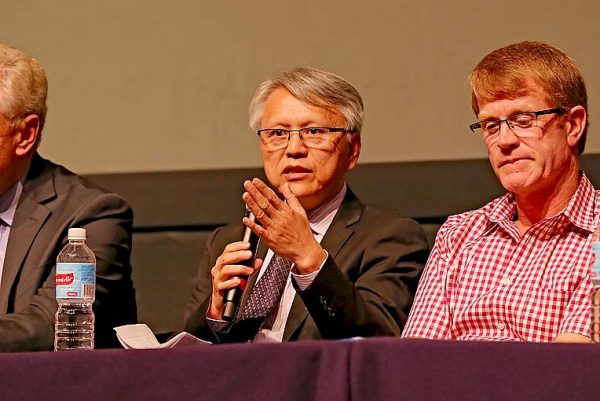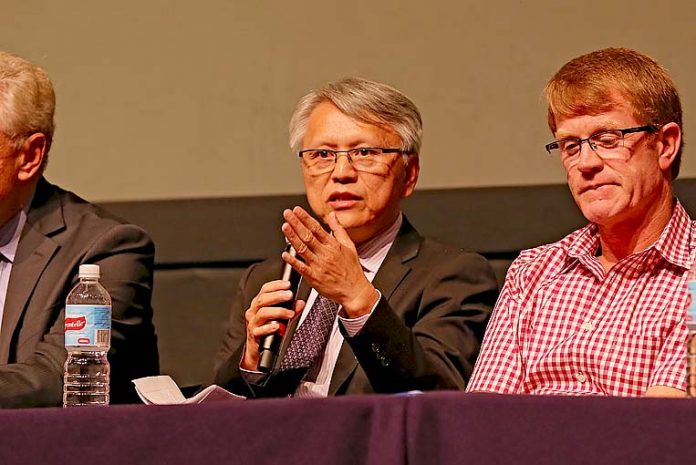
MOUNT Gambier Mayor Andrew Lee has slammed the Marshall Government’s “high handed” rate capping legislation as punishing a majority of South Australia’s local governments for the excessive expenditure of a handful of councils.
The city’s mayor reiterated council’s opposition to the legislation – introduced into parliament this week – which the State Government says will protect households and businesses from some metropolitan councils’ reported “exorbitant expenses”.
Mr Lee said the move to limit the amount rates could rise each year was a blanket penalty on the majority of South Australia’s “well-behaved” local governments.
“We have been behaving ourselves very well, but perhaps there are four, five or six councils that are doing the wrong thing,” he said.
“Why does the government have to impose this on 68 councils as a whole?
“It is not fair and in my view it is high-handed.
“Ultimately, it is the community that will pay for the consequences.
“There are some councils in Victoria where they have rate capping where they cannot have a long-term asset management to repair their road.
“I do not want to see that happen in our community.”
Under the State Government plan, an independent regulator would apply the Local Government Price Index, compiled from various data sources.
According to the government, the index would be slightly higher than the consumer price index (CPI), currently at 2.3pc.
In defending the cap, Premier Steven Marshall said council rates had increased at a rate that was three times the level of the last decade, labelling it as “simply unacceptable”.
Mr Lee disagreed with the state leader’s sentiments, saying the council’s increases in general rate revenue during his term had contributed to a number of key capital and operational projects.
“I do not think in my view and in council’s view this is unacceptable behaviour when you consider how many projects and how much work we have been doing in the last three years,” he said.
“We have demonstrated to our community we are very serious in looking after our ratepayers’ money, unlike the government’s claim.
“I think we are doing the job to deliver services to our community in a very transparent and efficient way.”
Grant District Mayor Richard Sage has previously said the impact on the council would depend on the rate cap, which the Liberal Party had indicated would be determined on a region by region basis.
He said the offloading of responsibilities previously provided by the State Government to councils had posed challenges to councils.
Wattle Range Mayor Peter Gandolfi said he hoped the same discipline of capping rates to CPI would be applied to increases on State Government taxes.
While the amendment is likely to pass through the government-controlled lower house, it will require Opposition or crossbench support in the Legislative Council to pass.
SA-Best MLC Frank Pangallo shot down the bid, saying restricting the amount councils could collect was not an effective measure and would result in the loss of essential services.
“What you’ll find with rate capping is people seem to think what rate capping means is that rates are not going to go up, but they are going to go up,” he said.
“What will happen is it will impact on services, so suddenly your garbage may not be picked up every week or money would not be spent on mowing the verges as often as they usually do.
“That sort of work will be scaled back to the detriment of the community.
Mr Pangallo’s former colleague-turned-independent MLC John Darley said the Xenophon-aligned party had backflipped on its policy of capping local council rates.
In indicating his support for the State Government’s legislation, Mr Darley said the Nick Xenophon Team campaigned to cap council rates at the last state election.
He said his Advance SA party had already sought a number of Freedom of Information Act requests “from a number of councils” into the use of corporate credit cards.
Mr Darley said his requests had found some metropolitan councils had used ratepayer-funded cards for staff meetings in high-end restaurants.








